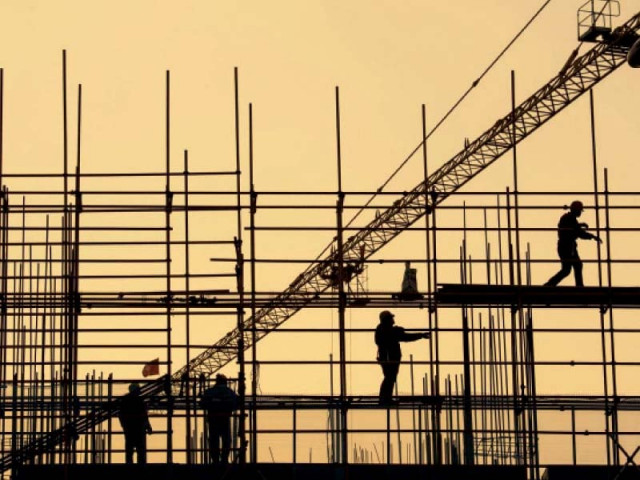Construction amnesty scheme extended for six more months
Alvi promulgates ordinance, suspending electronic tax assessment of income tax return filers

President Dr Arif Alvi has promulgated an ordinance to suspend electronic tax assessment of income tax return filers and extend the construction sector tax amnesty scheme for six more months.
The decision to hold the legal clause in abeyance that authorises the tax authorities to electronically assess and give notices of default tax amount to the income tax return filers would eliminate the chances of electronically serving tax notices on such people. It would also help process income tax refunds of the tax year 2020.
Now, the powers to again make the clause operational have been given to the Federal Board of Revenue.
President Alvi approved the ordinance on Wednesday to provide immunity from disclosing the source of income of investment in the construction sector.
The construction sector tax amnesty scheme -- the second by the PTI government -- had expired on December 31, which the government has now extended till June 2021.
The ordinance has been promulgated 48 hours before the start of the National Assembly and Senate sessions.
The completion period of the projects that will be initiated by availing the scheme has been extended for one year -- till September 2023- for both the old and new projects. The PTI government had also allowed those investors to avail the scheme who began their projects even before April 2020 when Prime Minister Imran Khan had announced the tax amnesty scheme.
People availing the tax construction sector amnesty scheme will enjoy immunity from disclosing source of income. They will also pay fixed tax on income on the sale of properties by builders or developers.
Through the Presidential Ordinance, the government has made changes in Clause 2A of Section 120 of the Income Tax Ordinance that deals with the issue of electronic assessment of the income tax returns filed by the taxpayers.
The government has now held this clause in abeyance, which it had introduced in June last year. Before the legal amendments introduced in June last year, the income tax returns filed by the taxpayers were deemed as self-assessment by the taxpayers. The taxmen could only challenge this assessment after some discrepancies were found or their cases were picked for audit.
However, through June 2020 amendment, the FBR had introduced the concept of electronic assessment and tax notices by declaring the status of the returns not be treated as final statement.
President Alvi has now suspended the clause, which had introduced the concept of processing returns through an automated system to arrive at correct amounts of total income, taxable income and tax payable by making adjustments for any arithmetical error in the return; any incorrect claim, if such incorrect claim is apparent from any information in the return; disallowance of any loss, deductible allowance or tax credit and disallowance of carry forward of any loss.
The FBR sources said that due to introduction of electronic assessment, there were chances of issuance of tens of thousands of tax notices, which would have created problems for the government.
Prime Minister Imran Khan had announced the tax amnesty scheme in the hope of giving a boost to the economy and also facilitating those people who had evaded tax to channel their hidden assets into the formal economy.
Till the fourth week of December, about 360 projects worth Rs140 billion had been registered with the scheme and another 261 schemes amounting to Rs125 billion were under the process of registration.
The government had claimed there were another 900 candidate projects worth over Rs1 trillion that could avail the scheme after promulgation of the ordinance.



















COMMENTS
Comments are moderated and generally will be posted if they are on-topic and not abusive.
For more information, please see our Comments FAQ